Meredith Sue Willis's
Books for Readers # 158
December 17, 2012
Carpenter Stendhal Achebe
Final Call -- Master Class in Prose Narrative with Meredith Sue Willis
January 2013 -- Click mswclasses.html for details.
It looks better online! -- Read latest changes and corrections online -- MSW Home
In this Issue:
Farm City; Tom McCarthy's C.; Stendhal;
Chinua Achebe; Myra Shapiro; Victor Depta
Recommendations for Gift-Giving Season
What It Means to Be Addicted to Books: Phyllis Moore
Almost Heaven White Water Outfitters Book Club Discuss Voices of Glory
Review of First Wheel of Time Book
Wanchee Wang Reviews
The E-Reader Report with John Birch
Announcements
Free e-mail subscription to this newsletter.
To create a link to this newsletter, use this permanent link .
For Back Issues, click here.
I've been hard at work finishing up the semester at NYU plus visiting some schools. At periods like this, my reading becomes totally unsystematic, just the joy of picking up a book and going to some other place. I've read a used book my sister didn't finish and thought I might like; C. by Tom McCarthy; which I came across on my library's e-book borrowing list; my third and favorite Chinua Achebe novel so far, and, at long-last-- inspired by James Wood in How Fiction Works-- I either read or re-read The Red and the Black, Stendhal's masterpiece about the young working class Julien Sorel who wants to be Napoleon and rises high in society but repeatedly undercuts himself with his class resentment and his love life.
I actually thought I had read The Red and the Black back in college, but now I'm thinking I might instead have read a few passages in French class. At any rate, it felt entirely new too me, wonderful and frustrating and sad. It is set after the Revolution and Napoleon, during the reign of Louis Phillipe, the so-called citoyen-roi who was a Bourbon, but had a bourgeois life style and affect. Rather against my will I found myself rooting for the misguided, intense, highly talented young hero. I didn't like his great love, Mme. de Rênal, so much, although I absolutely believed in her wishy washy semi-religious sensuality. On the other hand I did enjoy the tortured, bored, aristocratic Mathilde who is all about sneering at her suitors and the whole world until she finds herself reluctantly falling for Julien.
She makes the first move and insists on his coming to her bedroom. I was a little stunned that they just did it, right there, had sex. Stendhal narrates sex with the same simplicity and candor as he narrates the bloody and gruesome parts at the end (spoiler alert: I'm about to tell Julien's fate).
After many vicissitudes and adventures and false starts, Julien is imprisoned for attempted murder of Mme. de Rênal and refuses to fight for his life. The very end of the novel is technically brilliant, in my opinion. Julien's execution is delivered with no pyrotechnics, just slips by, and is immediately followed by a flashback in which Julien asks a friend to buy his body and give it repose in a cave on a mountainside, then we get the scene of the burial and Mathilde coming to the cave to imitate the lover of her ancestor and kiss the severed head– so romantic and comic and macabre. Finally, we return to the day of the execution and Julien enjoying the freshness of the day as he walks to the guillotine. They don't make 'em like that anymore, or, at least, not with Stendhal's confidence.
Chinua Achebe's A Man of the People is serious and funny, with considerable irony toward its narrator, western educated, a sometimes feckless lover, and a would-be politician of a narrator. In the end, however, Odili, for all of his quirks and indignation, stays the course, does not sell out, and even gets the girl. It's a bit of an African All the King's Men (about a big shot corrupt politician who started out caring for the ordinary people), but I like Achebe's book better because there is less Southern pomposity and lugubrious suffering. Achebe's people are constantly on the move, and talking! Everyone talks with fascinating switches in language and level of diction. Sometimes he interweaves passages of pidgin, which I often didn't understand but who cares, and also traditional proverbs. This particular style of speaking with proverbs, which apparently is traditional at least in Nigeria, is at once ornate and practical, offering support for your argument and entertainment as well. There is a whole cast of wonderful characters, including the delightfully vigorous and wildly corrupt man of the people, Minister Nanga. There is Odili's father and Edna's father and Mrs. Nanga, who is too "bush" for her husband's aspirations, as demonstrated by how her skirt catches in her butt crack. It's a lovely complex, politically astute, and cheerful novel.
I also liked, but was less enthusiastic about Novella Carpenter's memoir of farming in Oakland, California, Farm City: the Education of an Urban Farmer. This was a solid book, very much worth reading, but I laid it down between sections (named for the largest animal raised and slaughtered up to that point: thus, Turkey, Rabbit, Pig). It was as much about the neighborhood where Novella and her long suffering boyfriend Bill set up housekeeping as about farming-- conflicts with local gang bangers and city officials and property owners over how much of a farm is appropriate within city limits, on someone else's land. Essentially Carpenter sets herself the question of exactly how far can you go with a (borrowed) empty lot and amazingly uncomplaining neighbors in growing crops and livestock. She makes the omnivore's case for both caring for her animals and eating them, although there is more than a little of the ick factor with how she keeps talking about the big pig as if he were a deceased family member, even as she learns how to make sausage out of him under the guidance of a semi-famous restaurateur.
Finally, I read Tom McCarthy's self-consciously post modern exercise in symbols and intellectual games, C. It's quite readable and more fun that I expected-- and this with me making zero effort to figure out the signs and codes and meanings. I just don't care for that stuff. I read it for the story, for the journey, with admiration but not caring much about the characters, which I believe would be just fine with McCarthy.
Here's what some reviewers said: Jennifer Egan in The New York Times says that McCarthy "fuses a Pynchonesque revelry in signs and codes with the lush psychedelics of William Burroughs to create an intellectually provocative novel that unfurls like a brooding, phosphorescent dream."
The July 2010 review in The Guardian says "...McCarthy's art world affiliations, and the rather arts-institutional intellectual currency he trades in, also raise the suspicion that his end product might turn out to be a bit pretentious, in the style of Deleuze-loving architecture theorists or Lacan-quoting gallery notes. This suspicion isn't totally off the mark, yet McCarthy is a talented and intelligent novelist; however pretension-prone the scene he's interested in might be, his writing is tight and lucid, and he has a functioning sense of humour."
I'm quoting these both out of laziness, and, frankly, because I'd rather let someone else talk about the games. I see a lot of modern literary theory and literature that is influenced by it, and, indeed, a lot of the word play in James Joyce-- as games.
Still, I never thought of giving up on C. Serge, the main character, appears at several points in his life: growing up on a silk farm/deaf school with eccentric parents and sister, living with early wired and wireless communications. His sister rather arbitrarily drinks cyanide. He goes to a spa with his tutor to be cured of something called "black bile," which turns out to be more like adolescent blue balls. Next he attends World War I as a flyer, killing a lot of Germans in a haze of drugs. He loves the patterns of the world seen from above. Actually loves the war. Then spends time in London doing more drugs and attending séances. A high point of the novel is when he figures out how a séance table tipping is accomplished and breaks the hearts of various people who think they've been communicating with their dead families. Finally, he goes to Egypt maybe as a spy, and while he's there picks up some kind of blood poisoning from an insect bite and dies with many colorful and possibly but not probably meaningful hallucinations.
A lot of the scenes and events are extremely well told and funny. McCarthy kills off his characters at whim, to prove randomness of life, I suppose. I tended to skip the philosophical and symbolic stuff after a few lines, just the way I would skip some of, say, Proust's pages of pink hawthorn description. It's a taste, to like this stuff. Chacun à son goût. I'm not a big fan of Regency romances either, but I'm sure there's one out there I'd enjoy.
SOME THOUGHTS ABOUT SELF-PUBLSIHING AND GIFT-EXCHANGE
Lewis Hyde writes about art and the market economy. He says, ".....there are categories of human enterprise that are not well organized or supported by market forces. Family life, religious life, public service, pure science, and of course much artistic practice: none of these operates very well when framed simply in terms of exchange value. The second assumption follows: any community that values these things will find nonmarket ways to organize them. It will develop gift-exchange institutions dedicated to their support."– Lewis Hyde, "On Being Good Ancestors," The Gift (New York: Vintage, 1979-2007) pp 379-379.
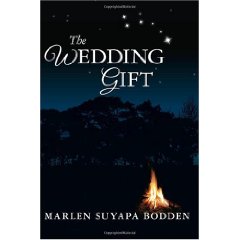
MARLEN BODDEN'S NOVEL COMING OUT FROM A MAJOR COMMERCIAL PRESS IN EARLY 2013-- Watch this newsletter for a Review:
Learn more at http://blogs.wsj.com/speakeasy/2012/07/11/self-published-slavery-novel-scores-world-wide-book-deals/
JOEL WEINBERGER ON ROBERT JORDAN'S WHEEL OF TIME NOVELS
Well, I've waited a long time to read The Eye of the World. I received it as a gift 15 years ago, but basically refused to read it because I was afraid Robert Jordan would never finish it, and I didn't want to commit to a series that would potentially be left unfinished. My fears were somewhat founded, as, unfortunately, Robert Jordan did not live to finish the series. However, the last three books have been completed (as authorized by Jordan's estate) by Brandon Sanderson and, apparently, are excellent. Over a decade after receiving it (and after throwing myself head first into A Song of Ice and Fire, for which I have many of the same fears), and after it became clear that Sanderson was (more than competently) finishing the series, I decided to jump into The Wheel of Time.The main appeal of this series, to me, is the expansive world that Jordan has created. The mythos that he has built, and the deep, complex history of the world, are fascinating, and this is what kept drawing me in. At first a bit overwhelming, the mythos becomes more manageable and clearer as the book progresses, although by the end I was still confused on many important points (it would have been helpful if I had been aware of the very helpful glossary at the back of the book while I was reading it).
As for the writing itself, I was a bit disappointed. Jordan doesn't really have a lot of subtlety. In addition, he's in a tough spot because he's writing about young teenagers for the most part, and its hard to make a novel for adults to take seriously about/from the perspective of teenagers. Unfortunately, I found some of the writing, especially about some of the love interests, to be pretty weak and not terribly interesting or believable; while Jordan wanted me to care about the characters and their relationships, I often found myself thinking that I was just reading about lame, immature crushes.
Overall, I am very pleased with the book and look forward to reading the rest of the series. While I'm not invested in any particular characters at this point, I'm fascinated by the universe Jordan has created and am greatly anticipating advances in the greater story arc.
On a side note, a problem I generally carry in most fantasy novels (although this is certainly not a show stopper for me) is the use of magic as a deus ex machina. A lot of fantasy books and series tend to put forth a magical set of characters that wield magic in basically unpredictable ways, and the limits of their powers are left, at best, ambiguous, and at worst unbounded (a Song of Ice and Fire is a notable, wonderful exception to this). Now, I went into the Wheel of Time with the understanding that in Jordan's world there are well defined rules about magic and how it can be wielded, that there are specific limitations, and that all of this is pretty explicit and clear. Unfortunately, I didn't get a real sense of this from The Eye of World. While there were some rules established, I was constantly surprised (in a bad way) at critical moments about what a magic-wielder could or could not do. I only mention this because my expectations were set, and I was disappointed in this respect. However, I am holding out hope that this changes in the succeeding novels, and strict rules are established. As I said, rules are hinted out, so I am hopeful.
WANCHEE WANG REVIEWS Father James Martin's book IN GOOD COMPANY
I met Father James Martin, Jesuit priest and prolific writer, at an author panel and found him to be funny, articulate, and charming. He read from his first book, In Good Company, published in 2000. The passage he chose recounts his childhood exposure to Catholicism and his time as an undergraduate business student at the University of Pennsylvania. By his own admission, he "did not come from a very religious family, at least not the kind that considers themselves 'blessed' if a son decides to become a priest." After graduation, he worked at GE for six years before entering the priesthood. The book ends with his taking vows. Father Martin's story is one about abandoning a promising corporate career for a life of "poverty, chastity, and obedience."He describes his growing disaffection with the business world (he worked at GE when Jack Welch was CEO). Under Mr. Welch's leadership, GE stock soared but the company was a stressful and demanding place to work as managers were pressured to meet their monthly targets. During this time, Father Martin began reading Thomas Merton, and a pull towards the spiritual proved irresistible for him. In his first two years as a novice, he performed manual labor, visited the sick, and cared for the dying in the slums of Kingston, Jamaica, all of which is detailed with humor and in uncomplicated prose. Because his story is so fascinating, I wanted to know more about how his faith evolved and how he adjusted going from the corporate world to the spiritual. Instead readers are presented with a straightforward re-telling of the events. In the end, a deeper examination of his personal and emotional life would have enhanced the reading experience.
Fifty Shades of Addiction: Confession of a Reader by Phyllis Wilson Moore, 2012
Your mother was right, you ruined your eyes. Worse, now you can't hear and read at the same time.You have battled a sibling over the right to read a book first.
You still remember the year you didn't get a book on your birthday.
You still have your childhood card game of "Authors" and play it with any kid willing to sit still.
You know the title of the first book you ever read and how old you were at the time.
You have your first library card and keep it in the safety deposit box along with your will.
You have used the internet to purchase the books on your first library card. They are stored in archival boxes under the bed.
You have read the ketchup label.
You had at least one book confiscated by a classroom teacher.
You've been punished for hiding a work of fiction inside a textbook.
You've read in most places with a light, including a dorm's bathroom shower stall.
Your mother threw away at least one book she called "smutty"; you retrieved it.
You buy multiple copies of books you really like and keep one copy hidden from view. You loan the others.
You don't really want library books because you have to return them but you keep the library on speed-dial just in case. Relatives know not to mess with a book you are reading.
For vacation, you pack more books than clothes.
You refuse to take a cruise until you get a Kindle.
You carry a book in the trunk of the car.
The postal service thinks you own stock in Amazon.com.
Your significant other has no ideas how many books can be ordered after midnight.
You have two shopping carts at Amazon.com.
You recently reread Bambi.
Your stack of "to reads" is as high as your unfolded laundry.
You get anxious if your stack of unread books is too tall or too short.
No one believes you when you say, "I will… I will… just let me finish this chapter."
You arrange your books according to authors who like or dislike each other; only friends can touch.
You read more than one book at a time.
You sneak newly acquired books into the house when no one is looking.
No one better mess with your autographed first editions with dust covers.
You begin to twitch if asked to list your ten favorite books.
You know which book you'd grab if the house caught on fire.
You finish reading a novel at a doctor's office by allowing other patients to go ahead of you.
Your nieces and nephews open your Christmas gifts last, and with a groan.
For presents, you ask for dissertations about the works of authors.
Your significant other knows you really want the dissertations.
You've ignored the smell of cake burning until there was a good break in the story.
You've missed a bus stop while reading.
You once read a book from back to front.
You get a "warm fuzzy" feeling when you walk past shelves of books.
You have gifted all the people you like with at least one book, including the people who don't like to read.
You have given a novel as a wedding gift.
When someone asks if you've read every book on your shelves, you say, "No", then add, "That has nothing to do with it."
THE E-READER REPORT WITH JOHN BIRCH: HOW TO FIND BEST SELLERS, AND HOW DEDICATED E-READERS ARE LOSING OUT TO TABLE COMPUTERS
The Sunday New York Times Book Review provides the absolutely best weekly list of traditional and e-book fiction, non-fiction, and a section it calls "Advice, how-to and miscellaneous" best sellers. Bbut where can you look if you don't subscribe to the Times? The answer may well be The Lubbock Avalanche-Journal, a Texas newspaper that publishes weekly lists of best selling print and e-books. You'll find it at http://lubbockonline.com/books/books-best-sellers
***
People who read e-books are moving away from devices like the earlier
versions of Kindle and Nook. Instead they're choosing tablets like the
iPad and the more sophisticated Kindle Fire. So says the authoritative Innodata website. It reports that "nearly 40% of readers now use a tablet computer, up from about 35% a quarter ago." Innodata's quoting an e-book study carried out by reference book publishers Bowker with the Book Industry Study Group. "By comparison," the study says, "nearly 50% of readers of e-books cite a dedicated e-reader as the device they use most often to read e-books. That's down from just over 50% a quarter ago and it's below 50% for the first time since the inception of the study."
The authors credit the multi-role Kindle Fire with a 17% market share among e-book readers. According to the report, smartphones and desktop and laptop computers are only preferred by less than 10% of ebook readers.
See John Birch's blog-- it contains about two dozen of his short stories and articles: www.JohnBirchLive.blogspot.com .
THE ALMOST HEAVEN WHITE-WATER OUTFITTERS AND BOOK CLUB READS DAVIS GRUBB'S VOICES OF GLORY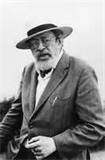
Our raft guide for this rafting adventure was Moundsville, West
Virginia's, Davis Grubb, author of several novels and short story
collections and a finalist for the National Book Award in Fiction for
his novel The Night of the Hunter. On this trip, we set out to experience his novel The Voices of Glory (1962). We attempt to describe our reading experience by comparing it to a white water rafting trip on the New River in West Virginia. In case you don't white water, a Class I section of the river is a calm stretch, while a Class VI stretch is the upper limits of a navigable experience and might even be dangerous. There are grades in between, but Class VI is as wild as it gets... Read the full discussion here , and also see what they thought of Lark and Termite and O Beulah Land) .
ANNOUNCEMENTS, NEWS, CONTESTS, WORKSHOPS, READINGS ETC. 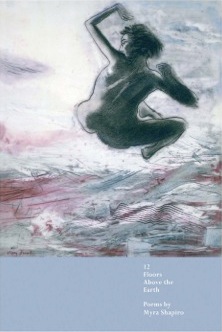
Myra Shapiro's new book of poetry is just out: 12 Floors Above the Earth.Tony
Hoagland says: “Like Grace Paley or Stanley Kunitz, Myra
Shapiro possesses a cultivated, tough-minded voice, and an unflinching
human commitment to know more. Whether she is asking hard
questions about the flickering strangeness of sexuality,
solitude, or religion, her special intelligence finds the
difficult hinges and pressure points of life. And, because she
does not hide from what she finds, her probing is both beautiful
and moving. ‘In longing you close your eyes,’ she says, and ‘in
wonder you open them.’ 12 Floors Above the Earth is a wonderfully alert and honest collection of poems. It is also darkly witty.“Victor Depta' s new book is Twofold Consciousness: Poetry and Essays on Mysticism, available from Blair Mountain Press and fromAamazon.
He writes: "We all know how ephemeral emails are. They add up by the hundreds until our computers remind us of the overload. We touch
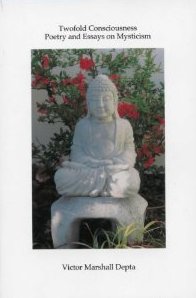 the
delete key and hours of our lives simply vanish. For me, that fact
became distressingly pertinent because, after I retired and moved away
from campus, a student friend and I began an email correspondence on
the subject of mysticism. I soon realized that I was investing too
much thought and energy in the subject to have it disappear with the
touch of a button. So I made hard-copies.
the
delete key and hours of our lives simply vanish. For me, that fact
became distressingly pertinent because, after I retired and moved away
from campus, a student friend and I began an email correspondence on
the subject of mysticism. I soon realized that I was investing too
much thought and energy in the subject to have it disappear with the
touch of a button. So I made hard-copies."After a few months I decided that, with so much material, I might shape it into a book, a collection of epistolary essays. I couldn’t use his emails. He was too busy pursuing an M.A. for that kind of editorial collaboration, so I re-worked my responses for coherence and continuity and published them as Twofold Consciousness: Poetry and Essays on Mysticism. He had been troubled by Buddhism and its lack of ultimate, metaphysical meaning, so my essays addressed the issue of meaninglessness in relation to mysticism (the experience of enlightenment) and to existentialism (our daily lives). I made distinctions between the self, consciousness, self-consciousness and pure consciousness. Self-consciousness is described as an epiphenomenon of language, while the alienation from material reality is made tolerable by the ecstasy of the enlightened experience, by pure consciousness, and by compassion rising out of meaninglessness. During the restructuring of my emails, I saw that the poems I had been writing for the past two years dealt with the same subject of spiritual meaning, so I included them as an integral part of the book."
The book is Twofold Consciousness, ISBN: 978-0-9768817-7-3 $15.00 Blair Mountain Press 114 East Campbell Street Frankfort, Kentucky 40601 502-330-3707 www.blairmtp.net.
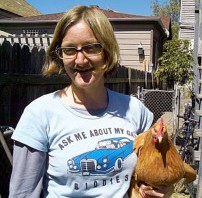


No comments:
Post a Comment